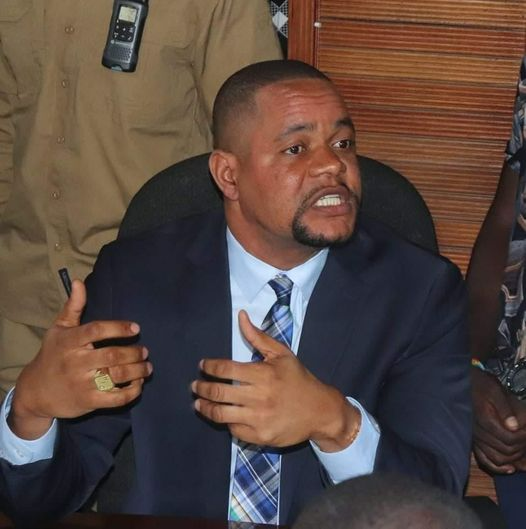Liberia: Costa Chides NEC for Flawed Biometric Voter Registration Process

— Says process was a disaster
The National Elections Commission has been accused of conducting a disastrous first phase of the ongoing biometric voter registration process, due to incompetence.
The accusation from Henry Costa, who is expected to contest the Montserrado County Senatorial seat, comes just a day after the electoral body released preliminary numbers of registered voters in the first phase, which was put at little over 1.4 million people.
According to Costa, the technical glitches suffered by the Commission, including frequent shortages of biometric cards, are clear indications that the exercise was not efficient enough to yield a higher voter turnout.
“The outcome of this flawed exercise is already evident in the low turnout of individuals eligible to register to be able to vote on October 10, particularly in areas where these failures were most pronounced. This is unacceptable and considerably calls into question the integrity of the electoral process in Liberia,” Costa said.
“[These] signs of voter suppression were also evident. Individuals [were[ turned away from registration centers based on flimsy reasons. The time allotted to conduct the first phase of the voter registration, especially in the most populous county, Montserrado, was very insufficient,” Costa claimed at a press conference yesterday. “Also, there was the issue of inaccessibility of registration centers which saw far too many people having to travel long distances, especially in the rural areas, oftentimes only to be told after making the long and hard journey, that, ‘the system is down.’ This disenfranchises certain segments of the population and undermines the democratic process.
However, the NEC has constantly claimed that the overall impact of the technical glitches on the turnout of the biometric voter registration exercise was minimal and did not impact turnout as some people claimed.
But electoral experts disagree, saying that the total number of registered voters in the first phase would have been higher if the problems had not existed throughout the registration period.
“If people get impatient and leave because the system breaks down and they don’t come back to register, we may not register enough eligible voters,” says Oscar Bloh, an expert on the Liberian electioneering process.
Bloh, the Chair of the Election Coordinating Committee (ECC), which is the country's largest election monitoring group, has previously warned about similar problems arising from the lack of piloting of the equipment on a small scale, saying then that the electoral body's transition to a biometric system is not without risks as the system has its own pros and cons.
In phase one, Montserrado and Margibi Counties had the largest shares of registered voters: the former with 891,201 and the latter with 184,425, which is still better than the remaining four counties.
Bomi and Grand Cape Mount Counties, which are among the poorest in the country, recorded 64,395 and 86,589 registered voters, respectively. Grand Bassa County, one of the wealthier counties, recorded 157,712 registered voters.
The first phase of the exercise was however marred by technical glitches, causing delays and leaving many frustrated and, in some cases, leaving people unable to register. One common technical issue was the lengthy amount of time it took for the solar panels used by the electoral body to power up the biometric machines. Another issue was the frequent shortage of biometric cards. But, the Commission has claimed that these issues were resolved as soon as possible with the help of mobile teams.
The Commission switched to using biometric equipment for its voter registration after coming under pressure to ditch its optical manual registration (OMR) system.
The OMR system, for many, does not improve the accountability and transparency of electoral processes and is usually tainted by controversy and mistrust. The biometric, which is also not a silver bullet, according to many experts, is seen as a safe route to produce a credible voter roll void of double registration.
But for Costa, a credible voter roll is only possible when there are less technical problems — so as to allow all eligible Liberians to register and vote in the October 10 elections.
This, he believes, is possible during the second phase of the biometric voter registration exercise, which is expected to kick off next week, saying “we demand that the NEC do a much better job.
“They must ensure that the exercise is conducted with fairness, transparency, and efficiency,” Costa said. “They must take steps to address the system failures that plagued the first phase and put in place measures to prevent voter suppression.”
